Climate-neutral Hungary 2050
Conference
3 June 2021
CLIMATE-NEUTRAL HUNGARY 2050 CONFERENCE
The apropos of the Climate-neutral Hungary 2050 Conference is the first anniversary of the adoption of the Hungarian Act on Climate Protection which set the Hungarian climate neutrality goal for 2050. In addition, the National Clean Development Strategy, Hungary’s long-term climate strategy until 2050, is expected to be adopted in 2021. These documents provide the framework for Hungarian climate neutrality efforts, but we need to fill them with concrete ideas and steps.
The main target audience of the Conference is primarily the key economic and social stakeholders of a fair climate-neutral transition in Hungary, however, the one-day event aims to convey messages relevant to the widest possible audience.
Climate-neutral Hungary 2050
Conference
 3 June 2021
3 June 2021  Online
Online
Videos
The Climate-neutral Hungary 2050 Conference set the following main goals:

- strengthening the social, economic and political consensus on the 2050 climate neutrality target and maintaining the „momentum”,
- discussing key issues of the just transition,
- „bringing together” actors, thinking together,
- contributing to the development of a framework for regular cooperation / dialogue.
REGISTRATION DEADLINE: 3 June 2021
Program
The detailed program of the online conference on the Zoom platform, the priority areas and topics for achieving climate neutrality, and the speakers of the event will follow each other as follows. The language of the conference is Hungarian and English, simultaneous interpretation is provided throughout.
Opening Plenary
9:00 – 9:05
András Huszár
Director, Green Policy Center
9:05 – 9:15
Frances Way
Executive Director, High Level Climate Champions Senior Leadership Team, UK
9:15 – 9:25
Barbara Botos
Deputy Minister of State for Climate Policy, Ministry of Innovation and Technology
9:25 – 9:35
Erzsébet Schmuck
President, Committee on Sustainable Development of the Hungarian Parliament
9:35 – 9:45
Gábor Kerpel-Fronius
Deputy mayor, Budapest Municipality
Presentations
9:45 - 10:00
Challenges and opportunities of climate neutrality
Diána Ürge-Vorsatz, Vice-Chair, IPCC III. Working Group
10:00 - 10:20
The road to climate neutrality
Csaba Kőrösi, Director, Directorate for Environmental Sustainability of the Office of the President
10:20 - 10:40
Climate change in Hungary – expected economic effects
Gábor Gyura, Head of Sustainable FInances Department, Hungarian National Bank
Panel discussions
10:45 - 11:45
Section 1.
A just transition: the social challenges on the road to climate neutrality
Description and panel participants:
A climate-neutral transition cannot take place “against” society. Particular attention must be paid to preparing for and addressing, as far as possible, those that inevitably arise during the transition – especially in the labor market – which cannot be prevented. One of the most exciting projects in Hungary today is the transformation of the Mátra Power Plant, which will affect the fate of thousands of jobs. At the same time, the so-called Fair Transition Plan has been completed for three counties in Hungary, which serves to ensure the above goals. The panel discussion will address the nature of these societal challenges and the responses that can be made to them.
Participants:
- Barbara Botos, Deputy Secretary of State, consortium leader, LIFE Mátra Integrated Project – „Roadmap for the safe, efficient and low-carbon transformation of Hungary’s last carbon region”
- Dóra Fazekas, Director, Cambridge Econometrics Hungary
- József Luzsi, National Vice-President for Rural Development, National Chamber of Agriculture
- Ferenc Rabi, President, Trade Union of Mining, Energy and Industrial Workers
Moderator: Gábor Filippov, Research Director, Equilibrium Institute
10:45 - 11:45
Section 2.
The contribution of the economic sphere to climate neutrality
Description and panel participants:
The corporate sector has a key role to play in effectively implementing the mitigation and adaptation efforts under the Paris Convention, and it is responsible for promoting more sustainable use of resources and socially responsible, ethical investment, especially in the manufacturing sectors. In addition to severe economic burdens, the COVID-19 epidemic could also provide an opportunity to get the economy back on a greener path. Banks and the insurance sector can also be the engines of this, as not only can loss events change and become more frequent, but the risks of climate change also play a key role in investments and lending, which calls for a new, more holistic approach in the face of rising societal expectations. in the context of climate exposures. Proper preparedness, prevention, and encouragement of green technological developments can all be essential to improve resilience to climate change and accelerate emission reductions.
Résztvevők:
- László Urbán, Deputy CEO, Hungarian Suzuki Zrt.
- Attila Chikán Jr., Chairman, Business Council for Sustainable Development in Hungary
- Radovan Jelasity, President, Hungarian Banking Association
- Anett Pandurics, President, Association of Hungarian Insurance Companies
Moderator: Tibor Schaffhauser, Co-founder, Green Policy Center
12:00 - 13:00
Lunch break
13:00 - 14:15
Section 3.
Opportunities for regional cooperation in achieving a vision of climate neutrality
Description and panel participants:
Effective environmental policy commitments are essential to achieve climate neutrality goals. However, a significant proportion of these are not legally binding. Such commitments are more likely to promote more ambitious goals, but their achievements are not guaranteed by an actual mechanism. In contrast, legally binding instruments may run counter to the principle of subsidiarity and reduce the ambitious nature of the objectives, while providing greater assurance that promises will be kept. Achieving a balance between ambition and feasibility therefore proves to be a key issue in light of the climate crisis. In our discussion, we will address this dilemma, with particular reference to the Visegrad Four, who have an important role to play in advancing the region’s sustainability efforts.
Participants:
- Stelios Grafakos, Principal Economist, Global Green Growth Institute
- Aleksander Śniegocki, Head of the Energy, Climate and Environment Programme, Wise Europa
- László Örlős, Executive Director, Western Balkans Green Center
- Gabriela Fischerova, Climate action director general at the Ministry of Environment of the Slovak Republic
Moderator: Lilla Bartuszek, Secretary General, V4SDG
13:00 - 14:15
Section 4.
Opportunities and responsibilities of the non-governmental sector in achieving climate neutrality
Description and panel participants:
When discussing taking action against the negative effects climate change, the question often arises: who has the responsibility to take concrete steps? The governments able to pass new legislation or maybe the corporations who produce the goods. From the corporations’ side we can also hear the argument just as often that consumers should be responsible for disposing their plastic bottles properly. The organisers believe that in order to achieve climate neutrality, all are responsible, however in this section the panellist will discuss what are the possibilities of the non-governmental sector to motivate society to take action, maybe even applying pressure on policymakers and corporations to take active action.
Participants:
- Ákos Éger, Executive Chairman, National Society of Conservationists
- Katalin Sipos, Director, WWF Hungary
- János Székely, County Bishop of Szombathely
- Tamás Kodácsy, President, Ecological Church Movement of the Hungarian Reformed Church
Moderator: Péter Vigh, Project Manager, Másfél Fok
Plenary session – Institutional framework for the transition to climate neutrality
14:30 - 14:50
Lecture
Sharon Turner, Visiting Professor, University College London
14:50 - 15:45
Discussion panel
Description and panel participants:
Reaching climate neutrality by 2050 is not possible just by declaring a target. There needs to be a process for its delivery and an institutional framework to ensure that we are staying the course. Regular reporting and follow-up, sectoral targets and strategies, annual climate budgets are all possible institutional mechanisms.
Panel participants:
- Sharon Turner, Visiting Professor, University College London
- János Zlinszky, Associate Professor, Pázmány Péter Catholic University, Member of the Advisory Board, Equilibrium Institute
- Nils Meyer-Ohlendorf, Program Manager, International and European Governance Programme, Ecologic Institute
- András Huszár, Director, Green Policy Center
Moderator: István Bart, Senior Fellow, Equilibrium Institute
Closing remarks
15:45 - 16:00
Tamás Boros
Director, Equilibrium Institute
Registration
Attendance at the online conference is free, but registration is required. You can register by clicking the button below.
Registration
Speakers

Ákos Éger
Executive Chairman, National Society of Conservationists

Aleksander Śniegocki
Vezető közgazdász, Global Green Growth Institute

András Huszár
Co-founder & Director at the Green Policy Center

Anett Pandurics
President, Association of Hungarian Insurance Companies

Attila Chikán Jr.
Chairman, Business Council for Sustainable Development in Hungary
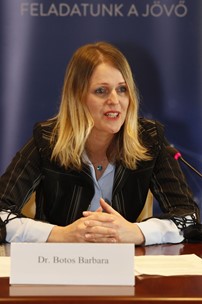
Barbara Botos
Deputy Minister of State for Climate Policy, Ministry of Innovation and Technology

Tamás Boros
Political analyst; director and co-founder of the Equilibrium Institute
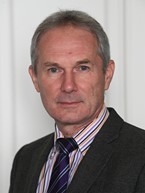
Csaba Kőrösi
Director, Directorate for Environmental Sustainability of the Office of the President

Diana Ürge-Vorsatz
Vice-Chair, IPCC III. Working Group

Dóra Fazekas
Director, Cambridge Econometrics Hungary
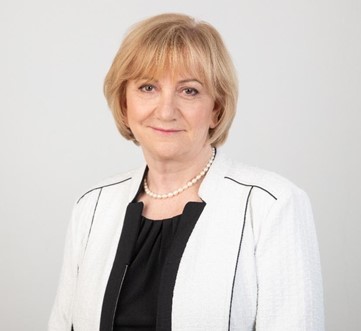
Erzsébet Schmuck
Deputy faction leader, President of the Committee on Sustainable Development of the Hungarian Parliament

Ferenc Rabi
President, Trade Union of Mining, Energy and Industrial Workers

Frances Way
Executive Director, High Level Climate Champions Senior Leadership Team, UK

Gábor Filippov
Research Director, Equilibrium Institute
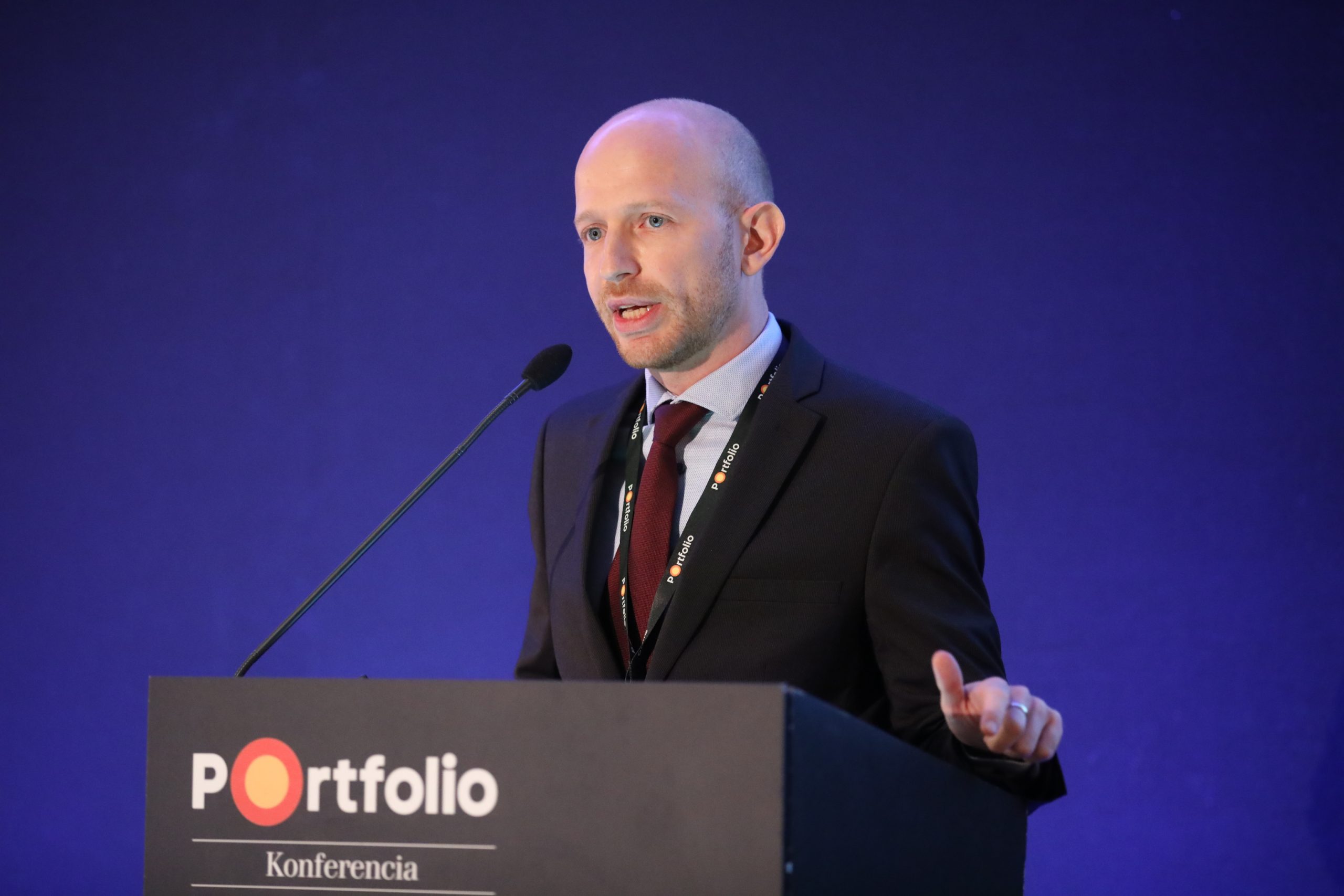
Gábor Gyura
Head of Sustainable FInances Department, Hungarian National Bank

Gabriela Fischerova
Climate action director general at the Ministry of Environment of the Slovak Republic

István Bart
Climate policy expert; Senior Fellow of Equilibrium Institute
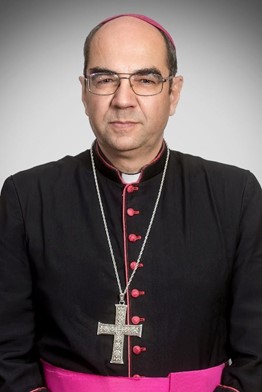
János Székely
County Bishop of Szombathely
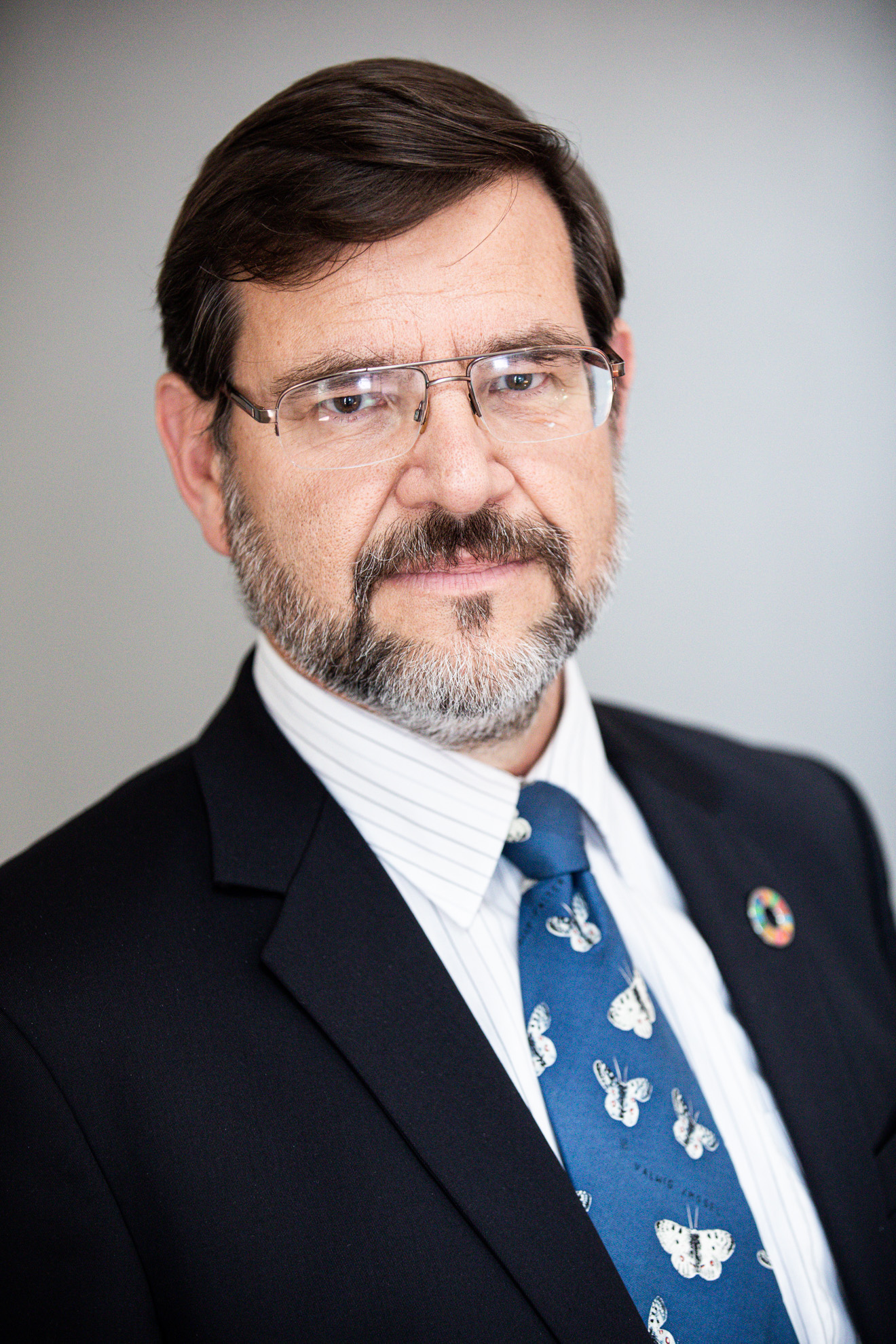
János Zlinszky
Associate Professor, Pázmány Péter Catholic University, Member of the Advisory Board, Equilibrium Institute
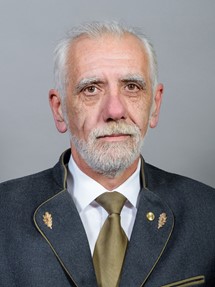
József Luzsi
National Vice-President for Rural Development, National Chamber of Agriculture
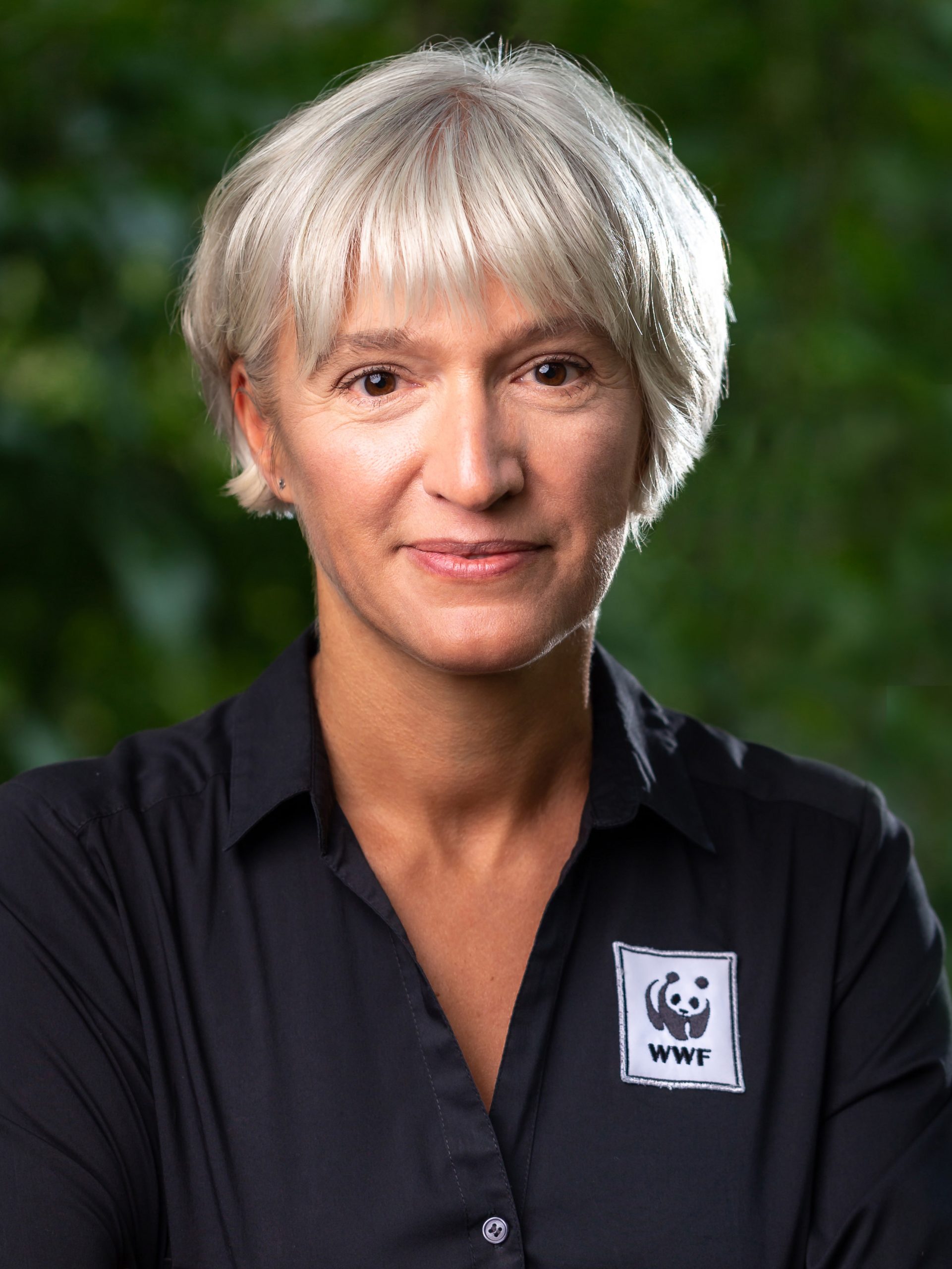
Katalin Sipos
Director, WWF Hungary

Krisztina Bombera
Television journalist, lawyer

László Örlős
Executive director, Western Balkans Green Center

László István Urbán
Deputy CEO, Hungarian Suzuki Zrt.

Lilla Bartuszek
Secretary – General, V4SDG

Nils Meyer-Ohlendorf
Program Manager, International and European Governance Programme, Ecologic Institute

Péter Vigh
Project manager, Másfél Fok

Radován Jelasity
President-CEO of Erste Bank Hungary Zrt., President of the Hungarian Banking Association
Sharon Turner
Visiting Professor, University College London
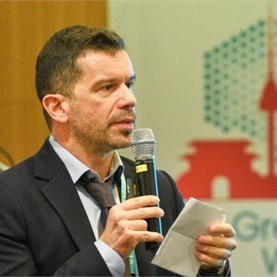
Stelios Grafakos
Principal Economist, Global Green Growth Institute

Tamás Kodácsy
President, Ecological Church Movement of the Hungarian Reformed Church

Tibor Schaffhauser
Co-founder of the Green Policy Center, climate policy advisor

Gábor Kerpel-Fronius
Deputy Mayor for the Smart City and Participation of Budapest

Ákos Éger
Executive Chairman, National Society of Conservationists
Ákos Éger is the executive chairman of the National Society of Conservationists, a member of the National Environmental Council, a member of the presidency of Friends of the Earth Europe. For more than 20 years, he has been an activist and collaborator for various green NGOs at the local, national and international levels.

Aleksander Śniegocki
Principal Economist, Global Green Growth Institute
Aleksander Śniegocki focuses on sustainable transformation and its effects on economic development, regional and industrial policy. He specializes in quantitative and qualitative assessments of the impact of public policy on the economy and coordinates several WiseEuropa projects at the European and national level. These include initiatives focused on long-term climate strategies, industry decarbonisation and CCUS technology. In recent years, he has coordinated projects aimed at supporting the Polish public administration in the preparation of long-term buildings renovation strategy and the strategy for the transformation of the economy towards climate neutrality. He holds a master’s degree in economics from SGH Warsaw School of Economics.

András Huszár
Co-founder & Director at the Green Policy Center
András is a senior climate change expert, lawyer and researcher with broad experience in international negotiations and policymaking. After graduating from the University of Szeged, he acquired his Master by Research degree at the University of Abertay Dundee in the field of European Environmental Law. He worked at the Hungarian Government as a legal expert in the negotiations leading up to the EU 2030 Climate and Energy Framework and the Paris Agreement. Later he became Hungary’s national IPCC and UNFCCC Focal Point. Becoming the Head of the Climate Policy Department under his leadership the Hungarian Parliament adopted the second National Climate Change Strategy, as well as its first Action Plan. András was also the main driver behind the initiation of a Hungarian IPCC-type report. In April 2020, he co-founded the Green Policy Center, a Central European Climate & Sustainability think tank. From September 2020 he is also a PhD candidate at the National University of Public Service where his main research area is the effective climate governance regime.

Anett Pandurics
President, Association of Hungarian Insurance Companies
She graduated from the Faculty of Business Administration of the Budapest University of Economics as an economist, and in 2018 she obtained a PhD in strategic management at the same university (Corvinus University of Budapest). She previously studied in the U.S. and Germany as a fellow. Her research and teaching activities have been recognized with Pro Universitate, Heller Farkas and Pro Sciencia awards. She started her career as a consultant, then from 2001 to 2005 she held the position of strategic director of Magyar Posta Zrt., And from 2002 she was a member of the board of directors of Posta Biztosító. Since 2005, she has been the chairman and number one head of the board of directors of Magyar Posta Life Insurance Ltd. and Magyar Posta Biztosító Zrt. Since 2013 she has been the president of the Association of Hungarian Insurance Companies (MABISZ).

Attila Chikán Jr.
Chairman, Business Council for Sustainable Development in Hungary
Attila Chikán Jr. has been the CEO of ALTEO Nyrt since its establishment. Under his leadership, ALTEO has grown into one of Hungary’s leading energy companies. Prior to that, he worked in various financial and investment positions. He graduated from the Budapest University of Economics and the College of Foreign Trade. He is active in sustainability issues as the CEO President of the Business Council for Sustainable Development in Hungary (BCSDH) and, as of December 2018, President of the Supervisory Board of AutoWallis Plc. Since 2019, he has been a member of the Supervisory Board of UNICEF Hungary, the Hungarian representative of one of the world’s largest and oldest child welfare organizations. As an active opinion leader on sustainability, Mr Chikán runs a blog called Chikansplanet.

Barbara Botos
Deputy Minister of State for Climate Policy, Ministry of Innovation and Technology
Dr. Barbara Botos is responsible for international, European and domestic climate policy, including energy efficiency and project implementation. For the past 11 years, she has been actively involved in the UN Framework Convention on Climate Change (UNFCCC) and EU negotiations on climate change, as the Hungarian Delegation and as the national liaison between the UNFCCC and the Intergovernmental Panel on Climate Change (IPCC). She was a Hubert H. Humphrey Fellow at Cornell University in Ithaca, New York, where she specialized in urban and regional planning, with a PhD in earth sciences and an MSc in environmental science and policy, as well as biological sciences. Barbara previously headed the climate policy department at the Ministry of National Development, taught at several universities, and worked in local government in the field of environment and climate policy.
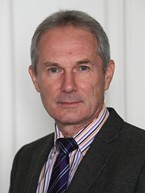
Csaba Kőrösi
Director, Directorate for Environmental Sustainability of the Office of the President
Csaba Kőrösi was the former Ambassador of the Permanent Mission of Hungary to the United Nations, co-chair of the UN negotiating process for Sustainable Development Goals. He was the initiator of the “Friends of Water” platform for sustainable water management, established at the UN and covering about 100 member states. In 2011-12, he was Vice-President of the UN General Assembly. Since January 2015, he has been leading the newly established Directorate for Environmental Sustainability of the Office of the President.

Diana Ürge-Vorsatz
Vice-Chair, IPCC III. Working Group
Diana Ürge-Vorsatz holds a degree in physics from Eötvös Loránd University and a doctorate in environmental sciences from the University of California (UCLA and Berkeley). Since 1996 she has been a professor in the Department of Environmental Protection at the Central European University (CEU) in Budapest, and from 2007 to 2018 she was the director of the CEU Center for Climate and Sustainable Energy Policy. She has been a member of the UN Intergovernmental Panel on Climate Change (IPCC) since 2015. Vice-Chair of the Working Group, formerly co-author of two evaluation reports. Since 2020, he has been the vice-president of the Hungarian Scientific Panel on Climate Change.

Dóra Fazekas
Director, Cambridge Econometrics Hungary
Since earning her doctorate in 2009, Dóra Fazekas has been a researcher on climate change, sustainability and economics. Since 2018, she has been leading the Budapest office of the British analytics firm Cambridge Econometrics. The Hungarian office primarily targets the countries of the Central and Eastern and South-Eastern European region with its econometric analyzes and economic modeling, while also participating in the research of Cambridge Econometrics’ offices in Brussels and Cambridge. Dora is also an international supervisor in the field of sustainable finance at Cambridge Econometrics. She brings together the professional work of the three offices of the analytical firm in this field and uses her conference presentations to draw attention to the impact of climate change and preparedness measures on the financial sector, the value of investment portfolios and how investments can contribute to the fight against climate change.
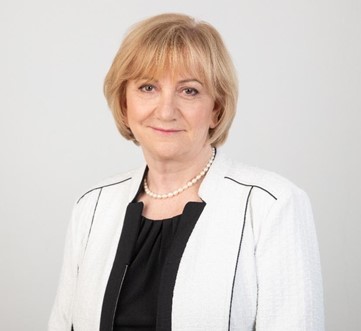
Erzsébet Schmuck
Deputy faction leader, President of the Committee on Sustainable Development of the Hungarian Parliament
Dr. Erzsébet Schmuck is a Member of Parliament, the President of the Committee on Sustainable Development of the Hungarian Parliament, a founding member of the LMP – Hungary’s Green Party, co-chairman, deputy leader of the faction, and honorary chairman of the National Society of Conservationists. With many decades of green civic involvement behind her, she is a committed supporter of ecological policy. The focus of her political work is on two major challenges of our time: working to improve the situation of people who are lagging behind and to protect our natural environment. She tackles these challenges within her work in the spirit of “think globally, act locally!”.

Ferenc Rabi
President, Trade Union of Mining, Energy and Industrial Workers
President of the Mining, Energy and Industrial Workers’ Trade Union, member of the board of the Hungarian Trade Union Confederation, member of the Executive Committee of IndustriAll Europe (European Trade Union Confederation). He has been an active participant in IndustriAll Europe as a delegate to the European Extractive Industries Dialogue Committee for more than a decade. Representatives of the European miners ‘and mining employers’ associations (EUROCOAL, EUROMINSE, UEPG, IMA) and the European Commission take part in the Commission’s joint work. The social partners of this committee strongly recommended that mine and coal plant closures be carried out in a fair and equitable manner for owners and workers.

Frances Way
Executive Director, High Level Climate Champions Senior Leadership Team, UK
Frances Way is Executive Director of the Climate Champions team for COP26. She joined the Climate Champions on 1st April on secondment from CDP where she is Chief Strategy Officer. CDP is an international non-profit that drives companies and governments to measure and reduce their environmental impacts. Prior to CDP, she worked in the private finance sector, primarily at Dresdner Kleinwort’s Global Equities Division. Frances sits on the board of EIRIS Foundation and holds an MSc in Environmental Technology from Imperial College.

Gábor Filippov
Research Director, Equilibrium Institute
Gábor Filippov received his degrees from the Eötvös Loránd University of Sciences’ (ELTE) Faculties of Humanities and Social Sciences, respectively. In 2015 he began his PhD studies at the Central European University’s Department of Political Science. Between 2007 and 2009 he worked as an expert advisor in the Hungarian National Assembly, and from 2009 to 2015 he was a political analyst and then a senior analyst at the Progressive Institute (later known as the Hungarian Progressive Institute). Between 2015 and 2019 he worked as a news editor and as a book editor for Athenaeum, a Hungarian publishing company. His analyses and op-eds have been published in numerous domestic and international press outlets, and he is frequently invited to talk about politics on television and radio shows. His research focuses on the European and the Hungarian far-right, on the histories of antisemitism and Islamophobia and their present-day manifestations, as well as the workings of contemporary authoritarian regimes.
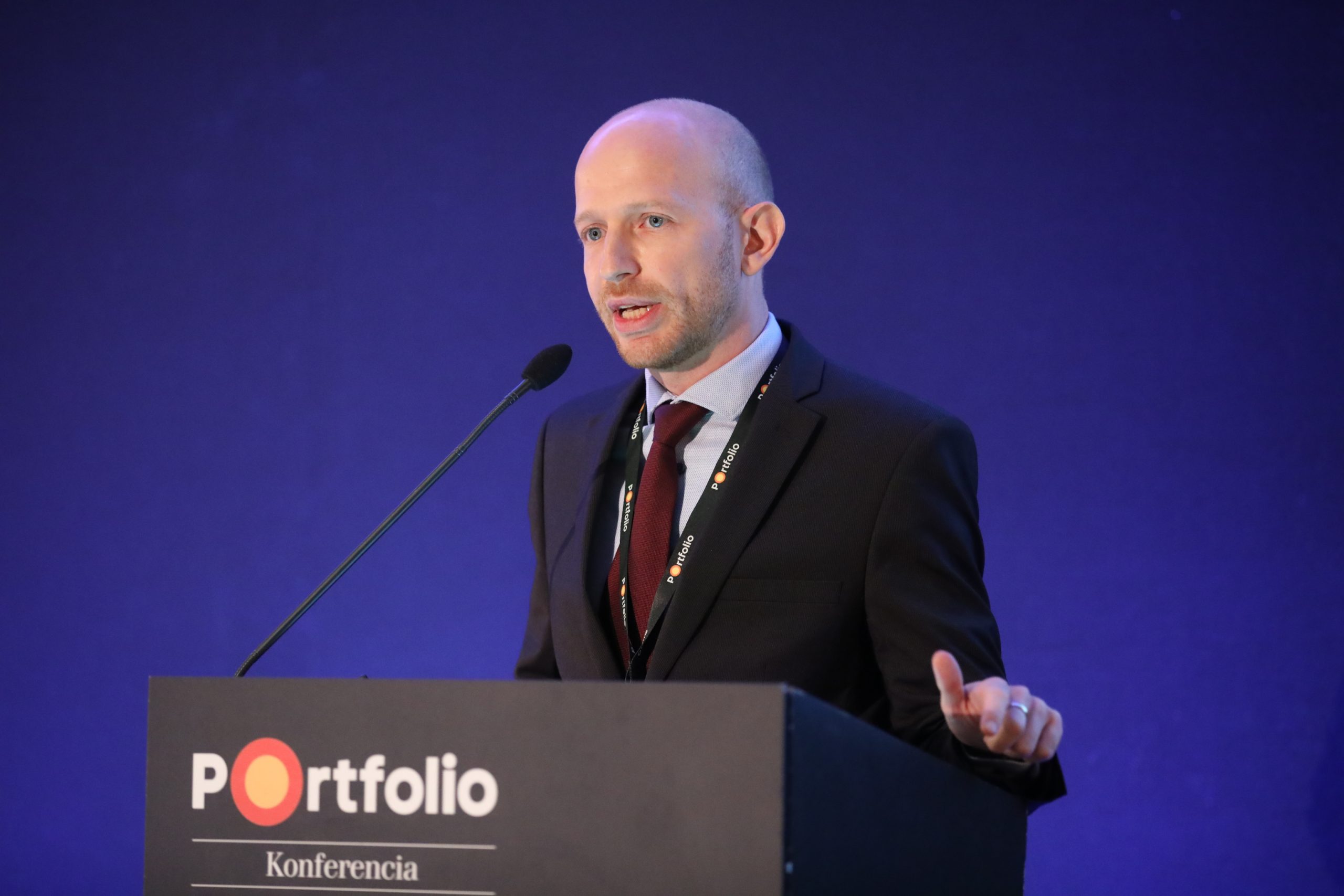
Gábor Gyura
Head of Sustainable FInances Department, Hungarian National Bank
Gábor Gyura is the head of the Sustainable Finance Department of the MNB. He is a member of several international bodies and working groups dealing with the topic. In addition to his university degree in economics, he also has a PhD degree, which he obtained at the Doctoral School of Earth Sciences of the University of Pécs in 2021.

Gabriela Fischerova
Climate action director general at the Ministry of Environment of the Slovak Republic
Gabriela Fischerova works as the Director General at the Ministry of the Environment of the Slovak Republic. She is responsible for climate change and air protection, including air quality. Since 2000, climate change has been her main occupation. At her capacities, she also acts as the chief negotiator of the United Nations Framework Climate Convention for the Slovak Republic. In 2016, she was leading the climate change EU Presidency team. Before rejoining the ministry in 2014, she worked as a consultant on climate change issues, held post of the Regional Advisor at the United Nations Development Programme, and worked for 12 year at the air protection department of the ministry, with international commitments as her main responsibility. By education, Gabriela is a chemical engineer completing studies at the Slovak Technical University, Faculty of Chemical Technology, air and water protection.

István Bart
Climate policy expert; Senior Fellow of Equilibrium Institute
Bart deals with climate policy, the social impact of the climate crisis, reducing emissions and adaptation in the last twenty years. Founder of the Climate Strategy 2050 Institute, a research expert of Klímapolitika Kft. Between 2011 and 2015, he was the founding director of the Hungarian Energy Efficiency Institute. From 2005 to 2011, he worked at the European Commission’s Directorate-General for Climate Action in Brussels on European and international climate policy issues. Between 2002 and 2005, he led the introduction of the EU Emissions Trading Scheme in the Hungarian public administration. He regularly publishes articles and makes statements on climate change issues.
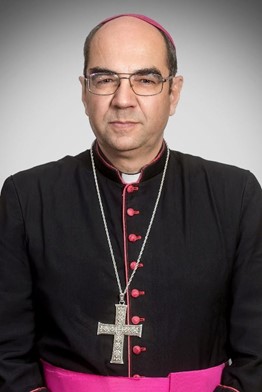
János Székely
County Bishop of Szombathely
János Székely was a student at the Esztergom Theological College, then at the Pázmány Péter Theological Academy in Budapest, and then between 1987 and 1991 at Saint Paul’s Theological College in Cremisan-Bethlehem. In 1995 he obtained a licentiate degree at the Pontifical Biblical Institute in Rome, and in 1997 he obtained a PhD degree at the Faculty of Theology of the Pázmány Péter Catholic University. He was ordained a deacon in Jerusalem in 1991 and then received the ordination in the same year. Between 2005 and 2006 he was the director of the Church of Eternal Worship in Budapest. Between 2006 and 2007 he was a parish priest in Esztergom in the parish of St. Anne. Since 2006 he has been the rector of the Esztergom Theological College. From November 14, 2007 he was ordained bishop of Esztergom-Budapest Archdiocese, on January 1, 2008 he was ordained a bishop. On June 18, 2017, Pope Francis appointed him the county bishop of Szombathely. He is the head of the Gypsy Pastoral Committee of the Hungarian Catholic Episcopal Conference, the chairman of the Caritas in Veritate Committee, and a member of the Committee on Education, Vocational Care and Adult Education. Since 2010 he has been the chairman of the Council of Christians and Jews in Hungary.
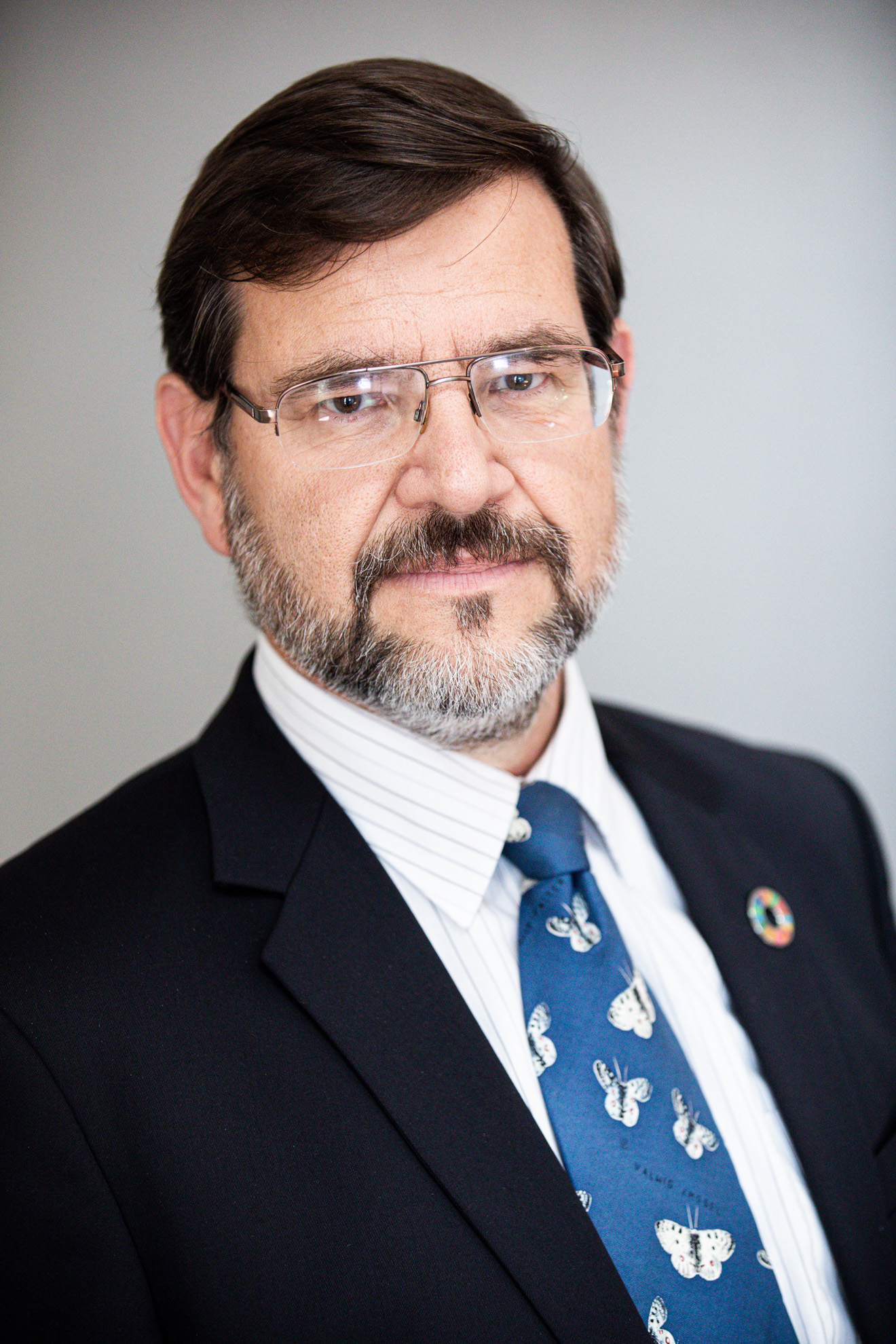
János Zlinszky
Associate Professor, Pázmány Péter Catholic University, Member of the Advisory Board, Equilibrium Institute
János Zlinszky graduated from the Faculty of Science of Eötvös Loránd University in 1982 as a specialist biologist. He received his doctorate in natural sciences in 1988 and his PhD from the University of Ulster (EC) in 1993. From 2018 to 2020, he was a delegate of the European Parliament to the Management Board and Executive Board of the European Environment Agency (EEA). In 2014, he worked in New York as Senior Scientific Adviser to the Co-Chair of the Working Group on the UN 2030 Sustainable Development Goals Framework. Since 1995, he has been teaching subjects related to sustainability and environmental protection at domestic (PPKE, NKE, ELTE, PTE) and foreign (Cambridge, Tours / Poitiers, Venice) universities.
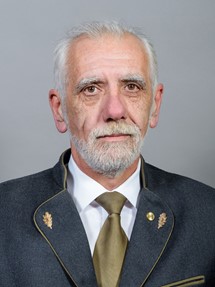
József Luzsi
National Vice-President for Rural Development, National Chamber of Agriculture
He was born in 1959 in Szolnok. In 1980, he obtained a forest management specialist qualification in Eger, with excellent results. Between 1978 and 1998, he worked in the Nagykunság Forest and Wood Processing Farm in various senior positions. Since 2003 he has been the president of MEGOSZ, since 2017 he has been the honorary president, since 2013 he has been the chairman of the Forestry and Game Management Department of National Chamber of Agriculture (NAK). From 2018, he is the NAK National Vice President for Rural Development. He has been a private forest manager, owner and manager of private forestry companies for 25 years. His companies manage the professional work of about 1,500 hectares of forest. Its afforestation in its own area exceeds 100 ha. In connection with his work, he has received several prestigious state and public awards (eg: Knight’s Cross of the Hungarian Order of Merit, Pro Silva Hungariae, Pál Rimler and Commemorative Medal for the Great Plain Forests).
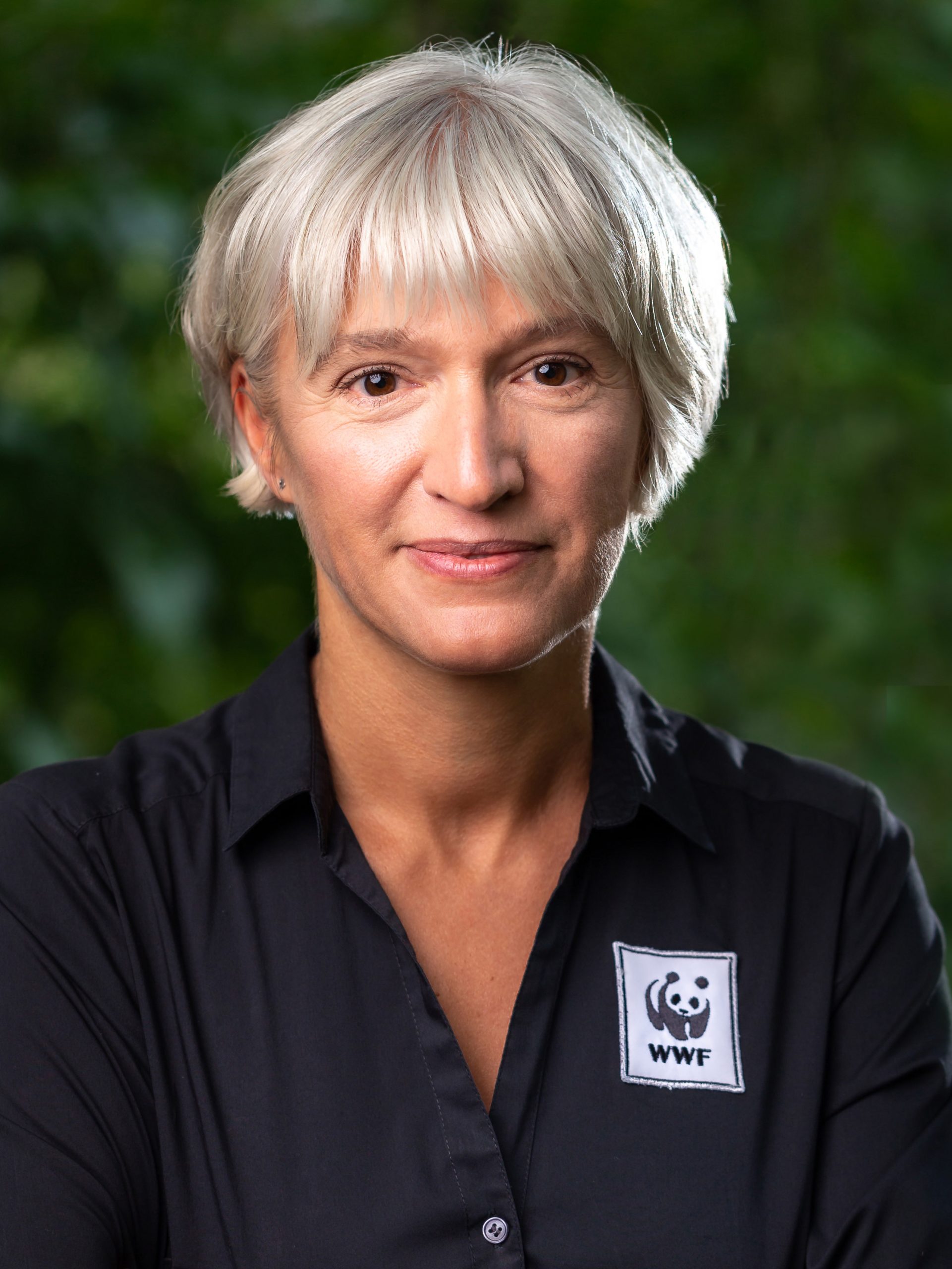
Katalin Sipos
Director, WWF Hungary
Katalin Sipos is a biologist and a nature conservationist in Hungary since 1998. After her experience at the Danube-Ipoly National Park Directorate, she joined WWF Hungary in 2015, of which she is currently the leader. Her areas of expertise include nature conservation policy, sustainability issues in the use of natural resources, and nature-based climate protection solutions.

Krisztina Bombera
Television journalist, lawyer
Dr. Krisztina Bombera is a television journalist, presenter, correspondent, lawyer and head of a value marketing company. Krisztina worked for years as a correspondent in the United States and as a junior legal assistant for a year at Princeton University. As a journalist, she covered, among others, Barack Obama’s presidency and the unfolding of the 2008 global economic crisis. As a volunteer, she works primarily with human rights and green organizations, and with companies on the expansion and development of corporate social responsibility. Krisztina is a mother of two children, her husband is a philosopher.

László Örlős
Executive director, Western Balkans Green Center
László Örlős is the Managing Director of Hungary’s Western Balkans Green Center Nonprofit Llc., a development agency of the Ministry for Innovation and Technology established in 2019 specializing in international green project generation. Prior to this position, he served as Chief Advisor in international finance at the Ministry of Finance of Hungary (2016-2019), and was the Chairman of the Supervisory Boards of the Hungarian Export-Import Bank Plc. and the Hungarian Export Credit Insurance Plc. (2016-2019)

László István Urbán
Deputy CEO, Hungarian Suzuki Zrt.
He began his career as an international economist at the Hungarian National Bank in 1977, where he worked as an employee for almost two decades, then as a member of the supervisory board for eight years. Since 2002 he has been the external business consultant of the Hungarian Suzuki Zrt. (MS Zrt.), And since 2007 he has been a member of the Board of Directors of MS Zrt. At the same time, he was commissioned to perform the duties of Deputy CEO. As Deputy Chief Executive Officer, his primary responsibility is to develop the Company’s government and industry relationships. This has been supplemented since 2009 with the management of corporate innovation: he has introduced conscious innovation management at MS Zrt. He has also been in charge of corporate communications for about two years. In 1988, he obtained a degree in international economics and a related doctoral degree. As a successful completion of his postgraduate studies at the Hungarian Academy of Sciences, he defended his PhD dissertation on monetary policy in 1993. He is a member of the Hungarian Economic Society.

Lilla Bartuszek
Secretary – General, V4SDG
Lilla has been a member of the V4SDG-Visegrad for Sustainability organization since 2019 and has been the Secretary General of the organization since January 2021. Founded in 2018 by enterprising young people, the organization aims to help achieve the UN’s sustainability goals and build regional partnerships here in Central and Eastern Europe. Lilla graduated from the Faculty of Law of the Eötvös Loránd University in the summer of 2020, then continued her legal studies at the doctoral school of the National University of Public Administration, her research topic being the implementation of the UN Sustainable Development Goals in the European Union. Lilla is also a consultant for the Sustainaware project, which researches the situation, social perception and political reality of non-formal climate protection education in Hungary.

Nils Meyer-Ohlendorf
Program Manager, International and European Governance Programme, Ecologic Institute
Dr Nils Meyer-Ohlendorf is Senior Fellow at Ecologic Institute and Head of the International and European Governance Program. With a background in international and European law, his work focuses on climate protection, EU policies, democracy and governance. He has led numerous projects on climate policies, climate laws, EU reform, reform of the United Nations, trade and tax reform. As a specific element of expertise, he works across political divides from right to left. He writes regularly for the Süddeutsche Zeitung, the Tagesspiegel, the Frankfurter Allgemeine Zeitung, EU Observer and IPG.

Péter Vigh
Project manager, Másfél Fok
Founder and editor of Másfél Fok (in English: One and a half degrees) – climate change understandably, which is a scientific dissemination platform. The aim of the project is to convey the best available scientific results from the diversified fields related to climate change to Hungarian society in an understandable way. He previously worked as a consultant on the EU’s LIFE climate policy program. He is a doctor of Literature and Cultural Studies (PhD).

Radován Jelasity
President-CEO of Erste Bank Hungary Zrt., President of the Hungarian Banking Association
Radován Jelasity has been the President and CEO of Erste Bank Hungary Zrt since 2011. He is a widely recognized banker with a thorough knowledge of the Central and Eastern European region. During his outstanding professional career, he has gained extensive experience in both commercial banks and supervisory bodies. Radován Jelasity served as Governor of the National Bank of Serbia from 2004 to 2010, having previously served as Vice-Governor of the Central Bank of Serbia for four years. He began his banking career at Deutsche Bank in Frankfurt, where he worked as a regional manager for Central and Eastern Europe for four years. From May 2020, he is the president of the Hungarian Banking Association.
Sharon Turner
Visiting Professor, University College London
Sharon is an established member of the climate and environmental law and governance community in Europe of over 30 years standing whose career has spanned senior appointments within the academic, civil society, philanthropic and public sectors. In addition to being Professor of Law at Queen’s University, United Kingdom, she has extensive senior executive and advisory experience in a number of complex public and third sector organisations, including secondment as a senior legal advisor to Government in the UK (Northern Ireland). She was a Visiting Professor at University College London and is now a Visiting Professor at the University of Sussex. She was an Executive Director of the European Climate Foundation with responsibility for establishing and leading its Climate Governance and Law Programme, which collaborated with civil society and knowledge institutions across Europe to successfully influence innovation in Paris Agreement compatible climate law and governance by the EU and at national level in several geographies. Sharon is now a self-employed consultant providing strategic advice to climate philanthropy and the third sector, including the European Climate Foundation.

Stelios Grafakos
Principal Economist, Global Green Growth Institute
Dr Stelios Grafakos is a Principal Economist in GGGI’s Climate Action and Inclusive Development Unit, based in Seoul, South Korea. In his current role, he is leading GGGI’s technical work on supporting member and partner countries to develop their Long-Term Low Emissions Development Strategies (LT-LEDS). Stelios is also responsible for GGGI’s work on economic analysis of green growth, particularly analysing the socio-economic (including employment) impacts of countries’ green and low carbon growth plans and policies. Prior to GGGI, Stelios was the Head of Environment and Climate Change unit at the Institute for Housing and Urban Development Studies (IHS) at Erasmus University Rotterdam in the Netherlands. He led a number of research, advisory and capacity building projects on environmental economics and policy, supporting local and national governments in low- and middle-income countries, to develop their low carbon and climate-resilient strategies.

Tamás Kodácsy
President, Ecological Church Movement of the Hungarian Reformed Church
(Dr. habil.) Tamás Kodácsy is a Reformed pastor and programming mathematician. President of the Ecological Church Movement of the Hungarian Reformed Church, senior researcher of the Research Institute of Church and Society of the Károli Gáspár Reformed University, head of the Creation Protection Workshop. Delegated expert of the Economic and Ecological Justice Thematic Reference Group of the European Churches (CEC), member of the board of the European Christian Environmental Network.

Tibor Schaffhauser
Co-founder of the Green Policy Center, climate policy advisor
Tibor is a climate change expert with over 7 years of international policy and diplomacy experience. He has graduated as an International Public Administration Manager in Budapest with international research experience in Berlin. Then he acquired his master’s degree in Tokyo in Public Policy with special focus on energy policy and international development. As former Deputy Head of Department for Climate Policy in Hungary he was working on a wide range of legislative, policy and implementation topics. He was also working closely with UN, EU, OECD, GGGI organisations and international development institutions and led the Hungarian expert delegation to several climate conferences. He also worked as project manager of a Hungarian LIFE Project and was deeply involved in setting up the Hungarian Government’s international development agency, the Western Balkans Green Center. After leaving the ministry, he has joined the Energy Community Secretariat in Vienna as climate policy adviser. Tibor is also a founding member of the Green Policy Center, working as a climate policy advisor.
Partners



